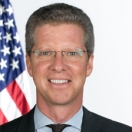
We all understand the impact the foreclosure crisis has had on homeowners. But the crisis has hurt communities, too. Foreclosed and vacant homes have a debilitating effect on neighborhoods and often lead to blight, neighborhood decay and reduced property values.
That’s why the Administration is announcing today another $1 billion to help communities struggling with foreclosures. Already, HUD has provided $6 billion in two rounds of Neighborhood Stabilization Program funding. These funds help communities buy and redevelop foreclosed and abandoned homes and residential properties – putting Americans back to work, creating more affordable rental housing and helping the neighborhoods that need it most.
Today, the $4 billion first round of Neighborhood Stabilization funding is in communities, buying up and renovating homes, and creating jobs. The $2 billion included as part of President Obama’s Recovery Act is making a difference as well. This second round of funding differed from the first in that it was competitively awarded – to encourage innovative local partnerships, reward the best ideas for tackling the housing crisis and grow local economies in impactful ways.
You only need look at a city like Minneapolis to understand the impact Neighborhood Stabilization is having. With $5.6 million of Neighborhood Stabilization funds, Minneapolis was able to leverage an additional $30 million in resources from the Twin Cities Community Land Bank and the partnership of for-profit developers. Already, they’ve bought up nearly 250 properties in targeted neighborhoods, which they are rehabilitating to green standards and selling to responsible homeowners through a local down payment program.
Now, in the most heavily foreclosure impacted neighborhoods in North Minneapolis, home prices are gaining and local experts believe private market recovery is underway. It was that success that led the Administration to award the city another $20 million in the second round of NSP.
And more help is on the way to communities across the country. The additional $1 billion we announced today was included as part of the Dodd-Frank Wall Street Reform legislation ,
Building on the first two rounds, we expect the Neighborhood Stabilization Program will impact nearly 100,000 properties in the nation’s hardest-hit markets. Because this makes up 20 percent of vacant and abandoned homes over the last 18 months in NSP-targeted areas, addressing these properties will have ripple effects that could have a profound impact on our local, regional and national housing markets alike.
Still, the Obama Administration believes government can’t solve this problem alone. As Minneapolis showed, stabilizing neighborhoods requires private investment and other partners to step up.
Last week, I announced an important Neighborhood Stabilization innovation that helps make that possible called “First Look.” A historic partnership with the National Community Stabilization Trust and the nation’s leading financial institutions, First Look will gives every grantee an exclusive 12-14 day window to evaluate and bid on properties before others can do so. First Look will cut the time it takes to sell these properties in half, which is particularly important given that vacant and abandoned homes are more than three times as destructive to home prices as homes that have only begun the foreclosure process. It will also give grantees access to state of the art mapping and management tools, so they know what properties are available and who owns them.
Communities struggling with foreclosures and budget cuts rarely have the time or funds to establish individual relationships with financial institutions and negotiate the best price one house at a time. With the potent combination of Neighborhood Stabilization funds and First Look, they’ll have the resources and partners they need to buy target foreclosed homes strategically – and act quickly.
Obviously, these remain difficult times for every American. Neighborhood Stabilization is only one tool in our toolbox. And it won’t help every block wracked by foreclosures.
But with game-changing, market-oriented and cost-effective strategies like these—that bring more stakeholders to the table with a greater sense of shared responsibility—President Obama and I believe we can tackle tough challenges like foreclosures and blight. We can put Americans back to work. And we can help our communities recover.
Shaun Donovan is Secretary of Housing and Urban Development


